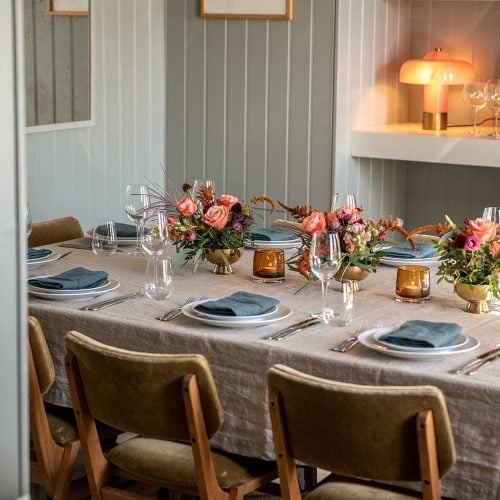What is Family Mediation and how could it help you?
It’s Family Mediation Week, so we asked Kent’s top private mediation practice to share everything you need to know about what exactly it is and how it can help you and your family through divorce or separation.

You’ve probably heard it before – January has developed a bit of a reputation for being the peak month for couples seeking a divorce. But what is also becoming clear at this time of year is the rise in the number of couples going through separation who are choosing Family Mediation, as an alternative to the more traditional legal approach of instructing lawyers or going to court.
Using a mediation service, rather than litigating, has become increasingly popular as it can reduce the time divorce proceedings take – and the cost too – and therefore, of course, reduce stress.
So, since this week is Family Mediation Week (22 – 26 January 2024), we asked Juliette Shaw, of Kent’s top private mediation practice, Wells Family Mediation, (based in Tunbridge Wells) ALL the burning questions, so that you don’t have to. Here’s everything we need to know.

Q: WHAT IS FAMILY MEDIATION IN A NUTSHELL?
Juliette says: ‘When couples divorce or separate, decisions need to be made about property, finances and children. Family mediation enables couples to make practical arrangements for their own future. The only requirement is that both sides are willing to mediate.’
‘It is an alternative to the more traditional legal approach of instructing lawyers or going to court and gives couples the chance to speak directly to each other and explain their concerns and needs in the presence of a professional mediator.’
Q: WHO ARE WELLS FAMILY MEDIATION?
Juliette says: ‘Wells Family Mediation is a private mediation service run by four experienced mediators, all from a legal background. We help couples reach their own decisions for moving on, tailor-made by them for their family.’
‘Our HQ practice is based in Tunbridge Wells, with additional offices across Kent in Tonbridge, Sevenoaks, Bromley and Kings Hill.’

Q: DOES EACH PERSON GET THEIR OWN MEDIATOR?
Juliette says: ‘No, the mediator is shared and impartial – mediators do not take sides. They also do not give legal advice but instead provide lots of information and take an active role in guiding the discussions. Mediation gives couples the chance to speak directly to each other and explain their concerns and needs in the presence of a professional mediator.’
‘The process gives couples a safe place to resolve their differences at their own pace and leaves the decision-making to the family and not to an outsider. It is a confidential process (with some very limited exceptions) and proposals put forward in mediation cannot be referred to in legal proceedings.’
‘The clients are in charge of their own destiny – mediators are merely there to help facilitate couples reach their own agreement. Any agreement reached only becomes legally binding once it has been made into a Consent Order by solicitors and stamped by the court.’

Q: WHO IS MEDIATION FOR?
Juliette says: ‘Family mediation is for anybody who has conflicts concerning their family that need to be resolved. This may be about children, parenting, finances, or general struggles to make good decisions at a difficult time.’
‘The services are used by people in a variety of circumstances. Husbands and wives who are separating or divorcing or couples who have been cohabiting and are separating. Parents of children who have never lived together but need to resolve issues concerning their child (or children), civil partners who are separating – there are any number of circumstances where it might be helpful to use this service.’
Q: WHY IS IT BENEFICIAL?
Juliette says: ‘Family mediation it is the quickest and the cheapest way of resolving issues when a relationship breaks down.’
‘While the meetings can be challenging, it is also an empowering process as the clients take responsibility for the discussions and the decisions that are reached. Mediation gives clients ownership of both the process and the outcome.’
‘Most importantly, there are emotional benefits to mediation. It offers a safe, neutral and confidential environment in which to be heard and understood. Mediation gives clients the opportunity to part with dignity, to leave behind the struggles of the past and commit to move forward well. This is an important outcome if there are children in the family.’

Q: YES, WHAT ABOUT WHERE CHILDREN ARE INVOLVED?
Juliette says: ‘All mediation at WFM is child-focused, so the welfare of any children will be the most important consideration in any discussion. Clients are helped to move on from being parents who live together to find a good working relationship as parents who live apart. This is an important transition process and brings benefits to the whole family.’
‘At WFM our focus is to put children’s needs first. In assisting parents to arrive at good decisions for their children’s arrangements, we offer an option where the children meet separately with a specially trained mediator. This is called “Child Inclusive Mediation” and you can read more about that here. It’s just another option to consider ultimately giving children a voice to be heard among the noise of separation.’
Q: AND DOES MEDIATION REPLACE THE NEED FOR LAWYERS?
Juliette says: ‘The Traditional Divorce process is Litigation. It involves both parties going to court on a designated date (sometimes there is a long wait), each party having their own solicitor and often trying to reach conclusions on contested areas of the divorce.’
‘Family mediation is when you try and find an amicable solution outside of the courts. The process is less stressful and significantly quicker than going to court, and can save you money.’
‘It is voluntary – courts expect families to attempt mediation before litigation begins but no-one can be forced to mediate, but it is increasingly seen as the best option.’
‘The National Audit Office reported that family disputes resolved through mediation are cheaper, quicker and according to academic research, less acrimonious than those settled through the courts.’

Q: HOW DO I START THE PROCESS?
Juliette says: ‘Our usual practice is to meet clients separately for a preliminary one-hour intake meeting. This meeting gives you the opportunity to explain your situation in full and to find out more about the mediation process. You will be able to ask any questions and discuss whether mediation is appropriate for you and, if not, what other options might be available.’
‘The discussion will be completely confidential and nothing will be reported back to the other client unless you specifically ask the mediator to do so. If you decide to mediate and if finances are to be addressed, you will be given homework to complete prior to the first mediation appointment.’
‘After both clients have met with the mediator separately for these one-hour intake meetings, you will then be able to arrange a joint mediation session with the mediator. Both clients will be present at this mediation session, although you do not necessarily have to sit in the same room. Please click here to find out more about mediation in separate spaces.’
HOW MUCH DOES IT COST?
Juliette says: ‘We are authorised to provide the Government Voucher Scheme which offers separating couples, with a child under 18, up to £500 towards the cost of mediation.’
‘The initial assessment meetings (‘MIAMs’ or ‘intake meetings’) are for a fixed fee of £150 plus VAT and usually last around 60 minutes. Once mediation commences, we charge for the time spent in the mediation appointment(s) at an hourly rate, which is £150 per person per hour plus VAT in Kent. There are slightly higher rates for London – more information available on request.’
‘We offer face to face meetings in Kent and London, as well as online using Zoom. Do give us a call to discuss the options available.’
Wells Family Mediation, Pantiles Chambers, 85 High Street, Tunbridge Wells, Kent, TN1 1XP, Tel: 01892 506906
Open in Google Maps
You may also like
















